Articles by Others
Interesting and relevant articles by other authors past and present selected by
Dr Iain McGilchrist. For articles written by Iain, click here.
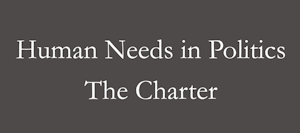
Human Needs in Politics The Charter
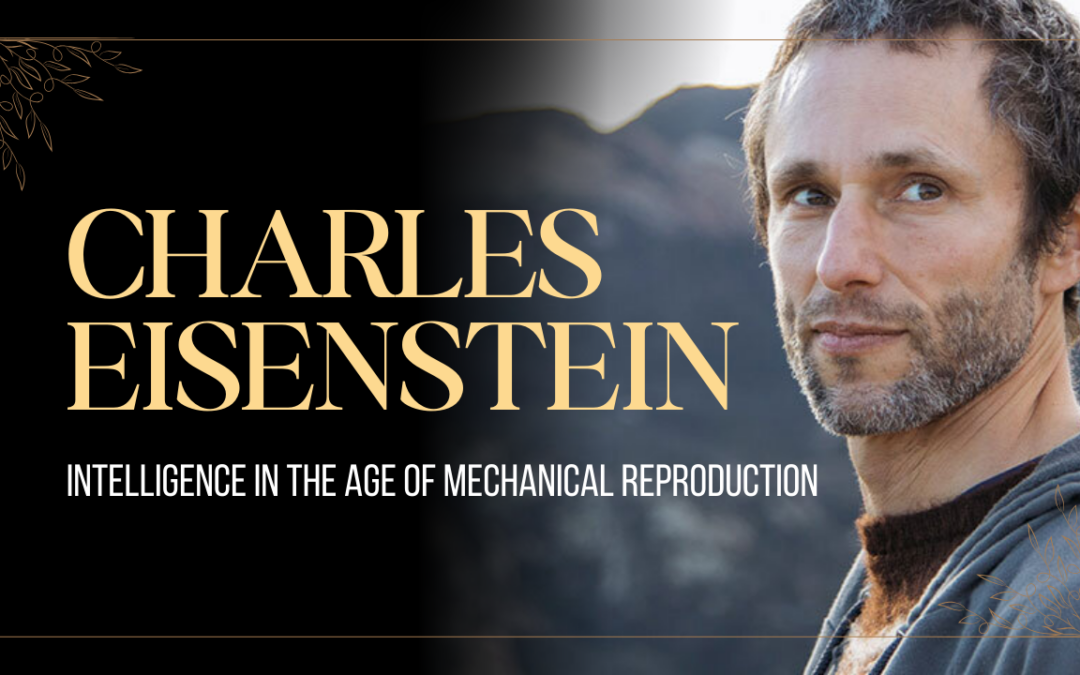
Intelligence in the Age of Mechanical Reproduction by Charles Eisenstein
Let’s start with the obvious. When human beings outsource any physical or cognitive function to other people or to machines, that function may atrophy within themselves. New functions may open up, but at a price. Is the price worth paying? Maybe it is; but let us be...

What are the downsides of digital? Iain McGilchrist talks to Fraser Battye
Better use of analysis and decision making, Inequalities, System thinking and system working, Wider determinants of health and prevention October 2024 Photo by Giu Vicente on Unsplash Making a list of ‘pros and cons’ is the first analytical technique most of us...

Raging against the machine
26 October 2024, The Tablet One of our most influential thinkers tells Abigail Frymann Rouch that the ever-proliferating crises facing the world can be traced back to society’s loss of a sense of humility and an obsession with hubristic individualism. The psychiatrist...

Integrar ciencia y espiritualidad, el camino del reconocido psiquiatra británico Iain McGilchrist
19 de septiembre de 2024 Integrar ciencia y espiritualidad, el camino del reconocido psiquiatra británico Iain McGilchrist En un mundo dominado por la racionalidad y la lógica, el médico británico sostiene la importancia de recuperar la dimensión de lo espiritual, lo...
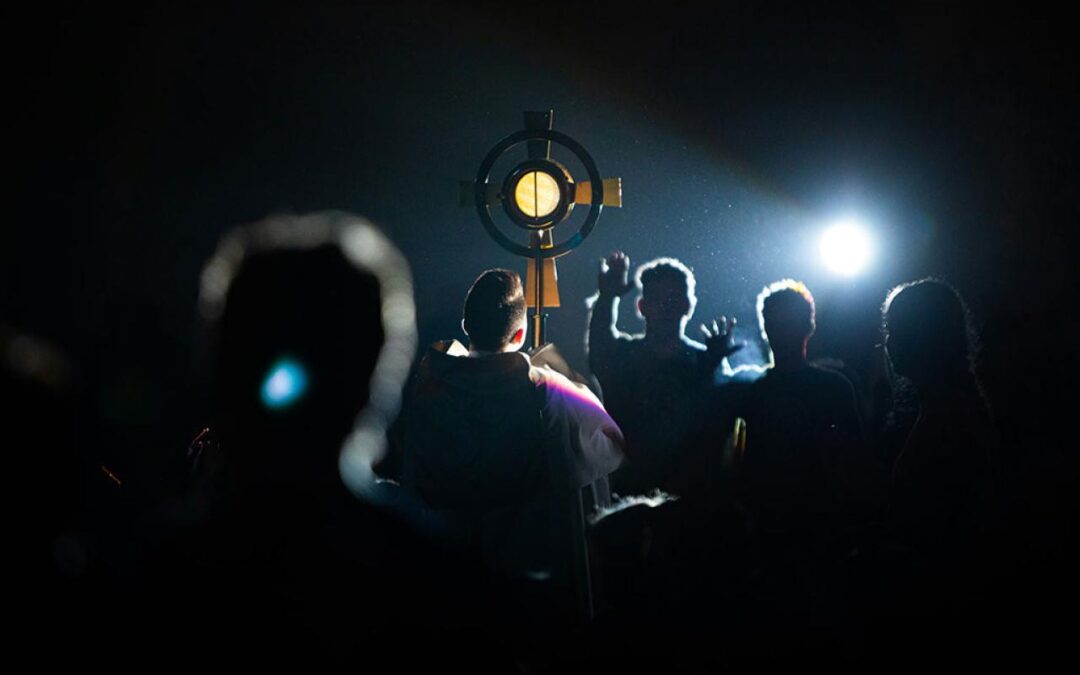
Revival – Really? Are we Moving Beyond the Secular Scepticism of Religion? by Abigail Frymann Rouch
Whisper it if you will, but an increasing number of observers are wondering if we are creeping towards some kind of Christian revival. High-profile public figures such as former atheist author Ayaan Hirsi Ali, novelist Paul Kingsnorth, comedian Russell Brand and storyteller Martin Shaw have converted. Articles and podcasts from secular writers and thinkers extolling Christianity’s influence on Western culture, the societal benefits of faith, or a renewed appreciation of the sacred, are becoming a more common sight than those tub-thumping for atheism. .

Context is Everything Because Nothing is what it is Without a Context by Hannah Gal
Our whole culture has been skewed by a belief that we have achieved a kind of wisdom which never existed in the past; and it’s just something we’ve invented in the last few decades. It’s a quite irrational position to take

Perennial Mysteries of Life & Death, Iain McGilchrist talks to Tim Freke (Part 2)
Friday, August 9, 2024 The excerpts below, are from an imho EXCELLENT 88-minute discussion: "WHAT IS LIFE?" between Tim Freke & Iain McGilchrist https://www.youtube.com/watch?v=hD7BHJHkufY Welcome to the second half of the excerpts from the EXCELLENT...

Perennial Mysteries of Life & Death, Iain McGilchrist talks to Tim Freke (Part 1)
Tuesday, July 16, 2024 The excerpts below, are from an imho EXCELLENT 88-minute discussion: "WHAT IS LIFE?" between Tim Freke & Iain McGilchrist https://www.youtube.com/watch?v=hD7BHJHkufY Tim Freke (TF): “You & I are both human beings on...

A Landscape of Consciousness: Toward a Taxonomy of Explanations and Implications by Robert Lawrence Kuhn
Abstract: Diverse explanations or theories of consciousness are arrayed on a roughly physicalist-to-nonphysicalist landscape of essences and mechanisms. Categories: Materialism Theories (philosophical, neurobiological, electromagnetic field, computational and informational, homeostatic and affective, embodied and enactive, relational, representational, language, phylogenetic evolution); Non-Reductive Physicalism; Quantum Theories; Integrated Information Theory; Panpsychisms; Monisms; Dualisms; Idealisms; Anomalous and Altered States Theories; Challenge Theories. There are many subcategories, especially for Materialism Theories. Each explanation is self-described by its adherents, critique is minimal and only for clarification, and there is no attempt to adjudicate among theories. The implications of consciousness explanations or theories are assessed with respect to: meaning/purpose/value (if any); AI consciousness; virtual immortality; and survival beyond death. A Landscape of Consciousness, I suggest, offers perspective
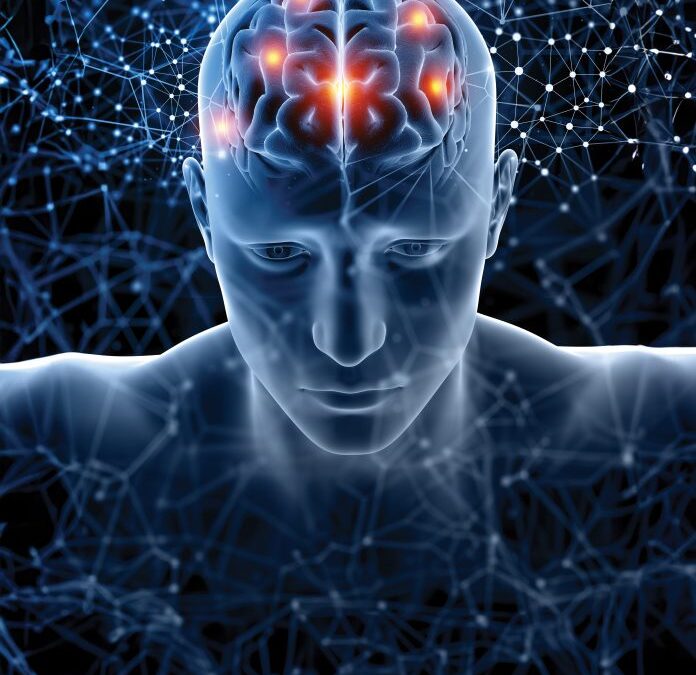
Rebalancing Our Brain: The Crisis of Meaning in the Age of AI – by Todd Pringle PhD, The Dakota Review
The brain is divided down the middle, with the two hemispheres of the cerebral cortex attending to the world differently. The right hemisphere vigilantly and empathetically attends to the whole, while the left hemisphere reduces that whole into parts in order to take action in pursuit of goals.

Left Versus Right Hemisphere: The Sorcerer’s Apprentice Syndrome – David Murray
Dr Iain McGilchrist’s work on neuroscience has widened the scope of theoretical knowledge of the brain and its functions. His books are written in simple terminology accessible to the layman. In describing insights into the relationship between the hemispheres of the human brain, McGilchrist lays out theories that are integral to an evolving understanding of the subject. His conclusion is that civilisation itself is in danger if current trends in human cognitive behaviour continue. More optimistically, he explains how humanity has been here before and survived.

Buddhism is an Ideal Practice and Potent Tool for Balancing the Left and Right Hemispheres of the Human Brain by Nilantha Ilangamuwa
In this interview with Dr. Iain McGilchrist, a distinguished authority in neuroscience, we explore the nuances of contemporary society, education, and the profound implications of technological advancement, particularly artificial intelligence (AI). Dr. McGilchrist, renowned for his extensive scholarship on hemispheric specialization within the human brain, provides insights into the imbalance between mechanistic thinking and holistic understanding, advocating a critical reassessment of educational paradigms.debate.

Nilantha Ilangamuwa – Connecting the Brain’s Missing Links: My Talk with Iain McGilchrist
by Nilantha Ilangamuwa April 3, 2024: 11 mins readDr. Iain McGilchrist, the renowned psychiatrist, neuroscience researcher, philosopher, and literary scholar [Credit: File Photo]In this interview with Dr. Iain McGilchrist, a distinguished authority in neuroscience,...
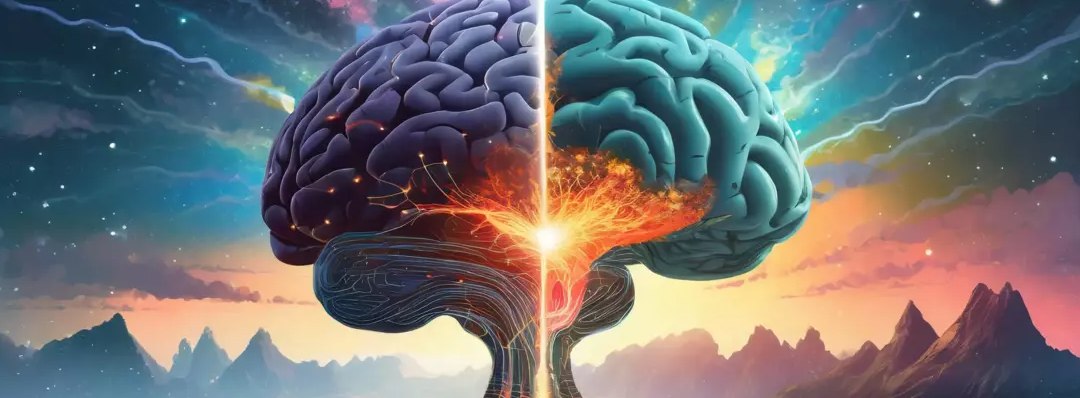
Iain McGilchrist interviewed by Scott Barry Kaufman. The Great Right Brain Debate
The idea of the brain being split into right and left hemispheres that do radically different things has entered the popular imagination. Following an article exchange on the IAI, Scott Barry Kaufman and Iain McGilchrist finally meet to investigate the remaining untouched ground in this mind-melding debate

The Indispensable Need to Learn to See Anew by Annmarie Sanders, IHM
Dr. Iain McGilchrist is a psychiatrist, neuroscience researcher, philosopher, and literary scholar. He is a Quondam Fellow of All Souls College, Oxford, an associate fellow of Green Templeton College, Oxford, a fellow of the Royal College of Psychiatrists, and former consultant psychiatrist and clinical director at the Bethlem Royal & Maudsley Hospital, London. He has been a research fellow in neuroimaging at Johns Hopkins Hospital, Baltimore and a fellow of the Institute of Advanced Studies in Stellenbosch. He has published on topics in literature, philosophy, medicine, and psychiatry. A citizen of Scotland, he is the author of a number of books, but is best-known for The Master and his Emissary: The Divided Brain and the Making of the Western World and The Matter with Things: Our Brains, Our Delusions, and the Unmaking of the World. LCWR communications director Annmarie Sanders, IHM interviewed Dr. McGilchrist on the need to perceive and love the world with an expansive vision and on the role of wonder and awe in the spiritual life.

The Divided Brain and Ways of Building the World: Parallels in the Thought of Iain McGilchrist and Christopher Alexander by Or Ettlinger
Abstract: What might have led to the fundamental changes in the built environment during the 20th century? While factors such as postwar reconstruction, urbanization, industrialization, shifts in style, or socio-political changes are surely involved, there may be deeper influences that are associated with the structure and dynamics of the human brain. Iain McGilchrist’s hemisphere hypothesis proposes that the differences between the left and right hemispheres are not functional but embody opposing approaches to the world: the left sees an atomized world made of things to be controlled and manipulated for survival; the right sees an interconnected world of wholes with which it is deeply related. McGilchrist observes that in recent centuries, there has been an increasing shift in the West towards the left hemisphere’s approach. Christopher Alexander’s lifelong quest for wholeness in the built world resonates with McGilchrist’s observations as applied to the field of architecture. Alexander observed that today’s built environment is an expression of our civilization seeing the world as a giant mechanism made of parts rather than an indivisible whole. In response, Alexander developed design methods that approach the world as a unified whole and the building of new places as a further unfolding of that whole.

The Consciousness of Neuroscience by Alex Gomez-Marin: Published in eNeuro
Feynman’s Birds: Richard Feynman is notorious for his witty quotes, including that “philosophy of science is about as useful to scientists as ornithology is to birds.” Indeed, some neuroscientists would look perplexed in front of analytic accounts of their own practices, methods, and foundations. Starlings fly by flapping their feathered wings and yet, regardless of their individual skills and collective choreographies, they may be ignorant about how and why they do it.

What inspired you? Iain McGilchrist, a contemporary spiritual thinker – by Dr Michael Evans
I begin with this quotation from the Introduction to The Matter with Things. In recent years I rejoined the Scientific and Medical Network in search of contemporary thinkers, outside the Anthroposophical Society, who appear to be awakening to the spiritual in the human being and the cosmos. They may consciously or unconsciously be representatives of the Spirit of our time – Michael. One such individual, I think, is Iain McGilchrist whose writings and interviews I have explored and would like to introduce in this article.

Iain McGilchrist: “Oriente equilibró mejor las visiones de los dos hemisferios cerebrales”
Es psiquiatra, filósofo y neurocientífico, dedicó toda su vida al estudio de la relación mente-cuerpo, se formó en medicina y en sus libros intenta explicar cómo los humanos podemos vivir y comprender el mundo real reuniendo la filosofía, la física y la neurociencia para crear una visión única de nuestra realidad; demoliendo el mito de la teoría de los hemisferios cerebrales y encontrando una singular interpretación para ciertas formas de entender el universo.

To ‘See’, or not to ‘See’: That is the Question. Moving on from a Half-Brained System of Economic Governance: The Regulatory Policy Institute Research Group
The underpinning thesis of this Essay is that practically useful knowledge concerning economic governance, and governance more generally for that matter, can be acquired by study of the structure and functioning of the human brain. The arguments have some resonances with, inter alia: the ancient microcosm-macrocosm analogy in philosophy, the brain being the microcosm and the governance system (‘Leviathan’s brain’) being the macrocosm; the Apollo/Cassandra story in Greek mythology; and much more recent mathematical analysis of self-similar systems, most notably in relation to fractals. They lead us to call for a new and better ‘Gestalt’ when thinking about the organisation of the structure and conduct of economic policy. The arguments follow a path already beaten in the development of AI, in the course of which major advances have been made via the study of neural networks and their use as analogies and sources of insight. No similar path has been trod in thinking about governance: as the 2nd President of the United States put it in his own time, the science of government has been “at a stand”.
Hutchinson and G. Yarrow, “To ‘see’, or not to ‘see’: that is the question. Moving on from a half-brained system of economic governance”, Essays in Regulation NS13.1, Regulatory Policy Institute, Oxford, 6 July 2023.
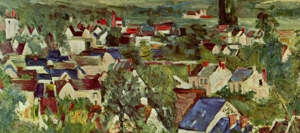
Two Minds – by Wendell Berry
Human orders – scientific, artistic, social, economic, and political – are fictions. They are untrue, not because they necessarily are false, but because they necessarily are incomplete. All of our human orders, however inclusive we may try to make them, turn out to be some degree exclusive. And so we are always being surprised by something we find, too late, that we have excluded. Think of almost any political revolution or freedom movement or the ozone hole or mad cow disease or the events of September 11, 2001.

What Happens with the Mind when the Brain Dies? by Alex Gomez-Marin
Abstract: A neuroscientist reflects on his near-death experience to ponder the nature of the human mind and the survival of consciousness after death. Ancient traditions, manifold personal experiences, nuanced philosophical views, and recent scientific evidence, all point to the brain as a filter (or receiver) of consciousness rather than its fanciful producer. No doubt, good-old-fashioned materialists —nowadays rebranded as physicalists, crypto-dualists, or illusionists wearing virtual reality goggles— insist that minds are “nothing but” what brains do. Nevertheless, a trans-materialist science can expand the scope and depth of the answers (and the questions) that really matter not only to science but also to human flourishing.
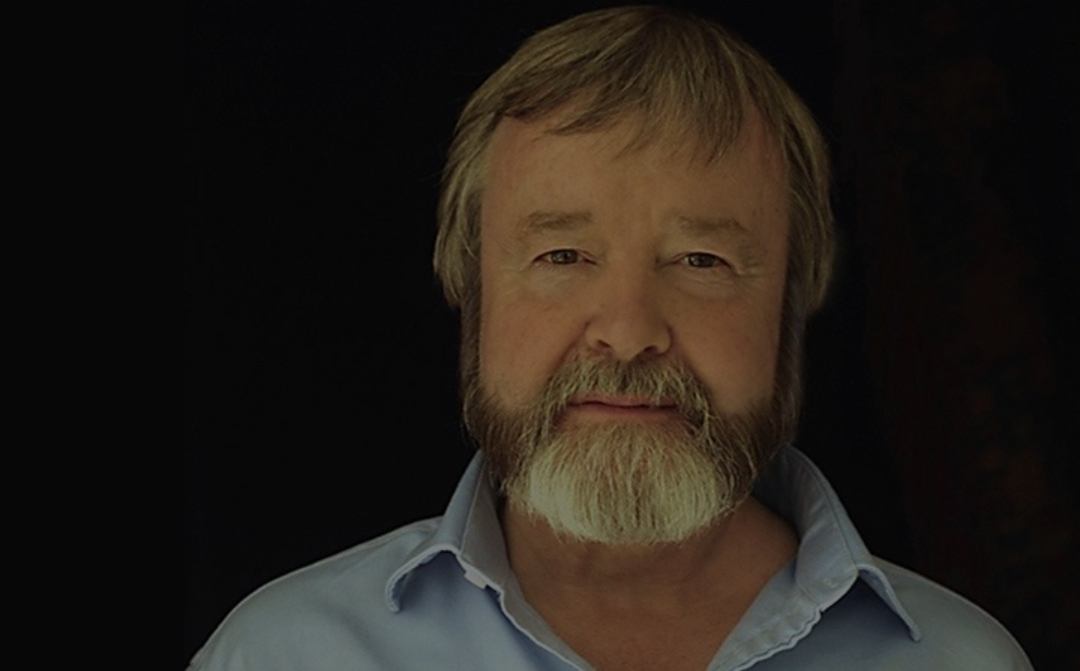
“The Matter With Things” by Matt Segal
“I’ve just finished reading The Matter With Things: Our Brains, Our Delusions, and the Unmaking of the World (2021), Iain McGilchrist’s two volume follow-up to The Master and His Emissary (2009). Volume 1 of TMWT focuses on “the ways to truth,” revisiting the hemisphere hypothesis and unpacking the respective roles of the left and right hemispheres in attention, perception, judgment, apprehension, emotion, creativity, science, reason, imagination, and intuition. Volume 2 then explores the implications of the hemisphere hypothesis for what is likely to be true about the universe itself, including deep inquiries into time, motion, space, matter, consciousness, value, and the sacred…”

“The Matter With Things” – Review by Takashi Baba
Our memories are often fuzzy and people sometimes make up stories after the fact. We are governed by irrational biases and can be easily fooled. I like to read books on brain science and behavioral economics and have gathered knowledge on this and that about the brain. Has it given me the ability to discern what is real or a good guidance to lead a better life? Unfortunately, I have no such confidence.

In Which Way Does Science Need To Change
Science needs to be more scientific! That is to say, less dogmatic, more open in what is considers worth investigating.This goes hand in hand with the virtue of humility both about what we know, and about what we could ever know for certain
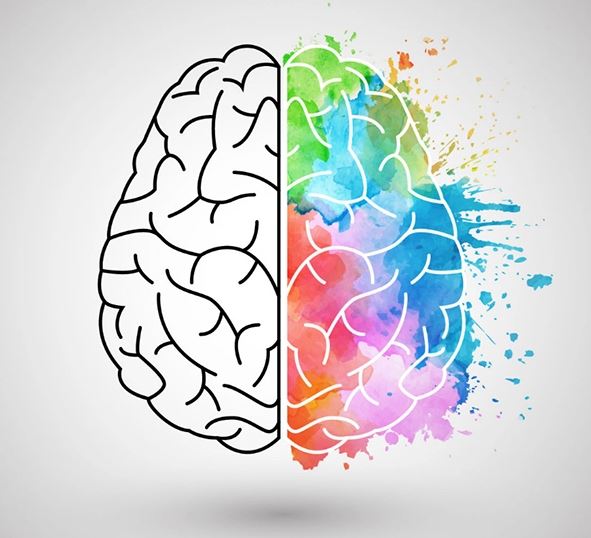
Insights from ‘The Matter With Things’
Why is this worth your time? Regular readers will be aware that I think Dr. Iain McGilchrist is one of the most consequential minds of our times. Last month he published a monster 1,400 page book, The Matter With Things. It’s his masterpiece, and an attempt to comprehensively expand on a thesis that has changed my life. I had the privilege of interviewing him last week.
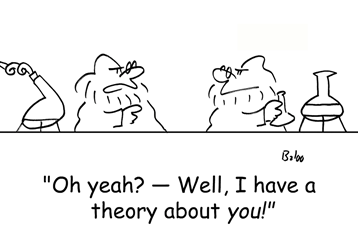
Adam Smith on Self-Deceit
The University of Virginia Center for Politics, led by Larry Sabato, provides polling results that show deep social, political, and psychological divides between Biden voters and Trump voters. Nowadays, it is common to think that large swaths of other people must be in denial.
In the old days, we argued good policy. Now we theorize one another.
Adam Smith had things to say about denial and self-deceit. Here I draw exclusively from The Theory of Moral Sentiments. Applications are in your hands—and breast.

Falling Into The Song Of Gaia
Enchantment is essentially an experience of wonder, and like the experience itself, the subject is hard to pin down. So think of this essay instead as a wander through one corner of it, with glimpses farther afield.
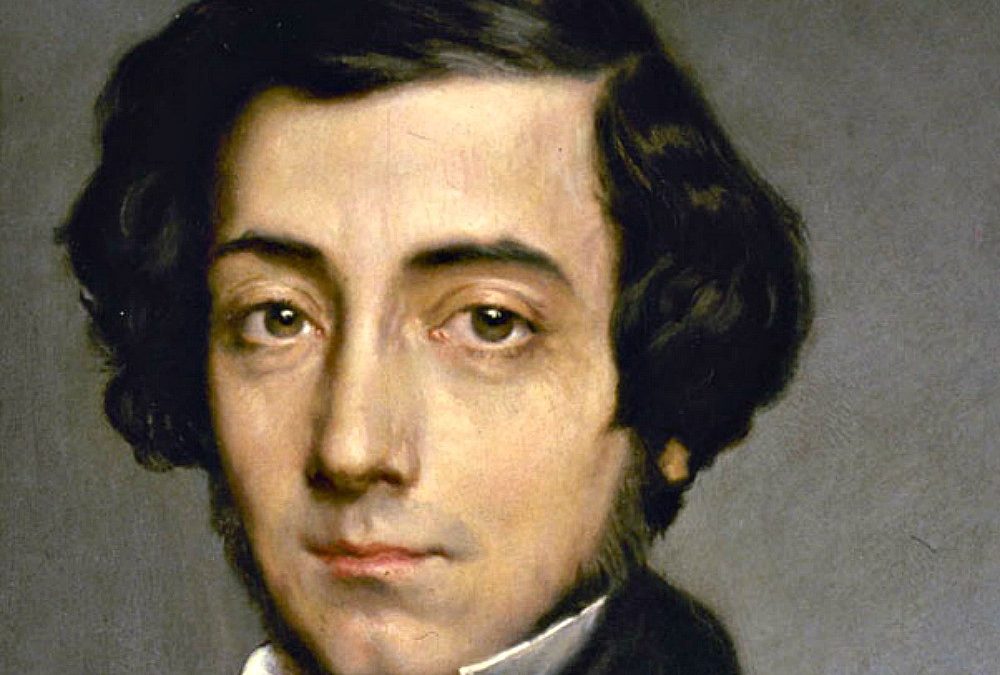
Tocqueville’s Dystopias: The Bad And The Very Bad
Daniel B. Klein September 6, 2021[A version of this piece appeared originally at City Journal.] Alexis de Tocqueville “The entire book that you are going to read,” wrote Alexis de Tocqueville in the Introduction of Democracy in America, Volume One...
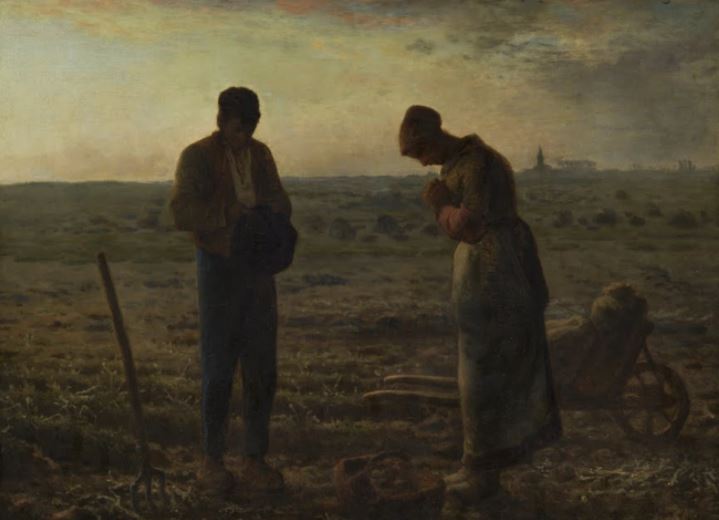
Adeline
She was born in August 1915, in Roquefort la Bédoule in the south of France. She died this morning. Adeline Blanc was my adopted grandmother.
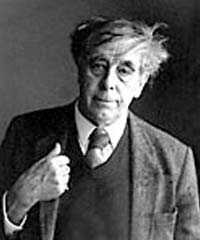
Begotten Not Made
I was pleased to find that the Oxford philosopher JR Lucas was a fan of The Master and his Emissary, and he sent me a number of his papers over the years. Most are still accessible but this gem was possibly never published. Before he died I asked if I could quote from it in my […]

Economics In Nouns And Verbs
Science proceeds as much by its instruments-its technologies-as it does by human thought. In early January 1610, when Galileo directed his telescope at the heavens he found to his astonishment that Jupiter had four companion “stars” (whichafter several nights he realized were moons circling Jupiter), and the Moon itself had mountains and valleys. This went against the long-accepted truths that all heavenly bodies circled the earth (or the sun), and that all were perfect. Instruments in science probe, they reveal, they occasionally surprise, and they illuminate. They become means of understanding.
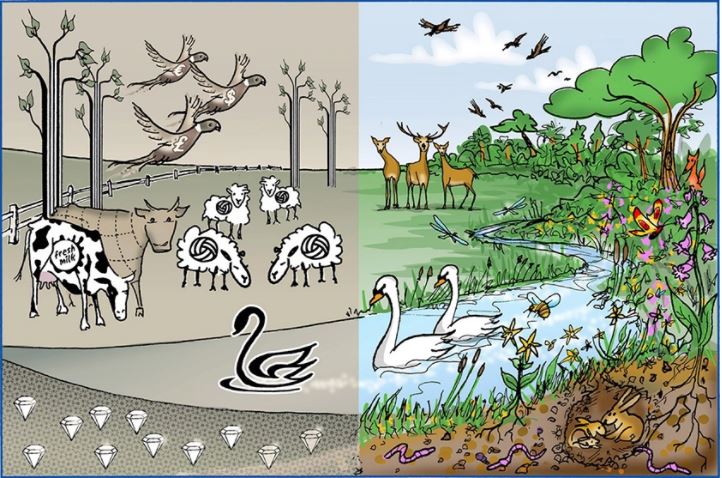
The Matrix Of The Emissary
Several years ago, while a family member was struggling with mental illness, I was introduced to the intriguing idea of ‘right brain to right brain’ therapy. Deciding I should learn more, I searched Amazon for books about ‘right brain therapy’ and was duly recommended The Master and His Emissary…
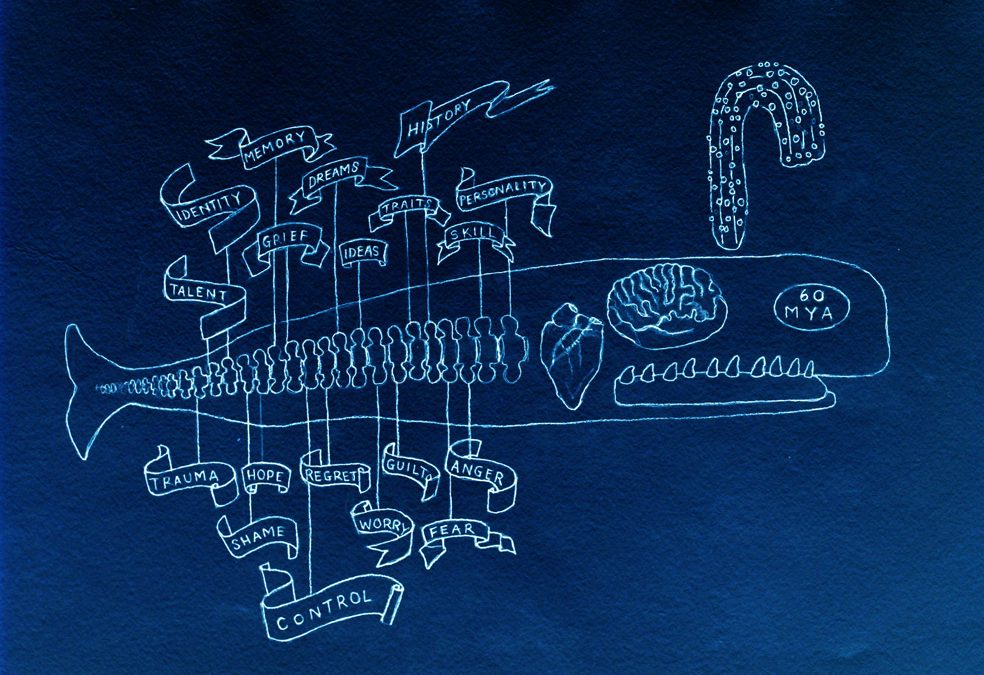
Will The Whales Inherit The Earth?
How can we resist the sixth mass extinction in our imaginations? What kind of cultural shift does it take? In this latest post for The Vanishing series, Rupert Read considers the future of human societies, following in the wake of whales. With artworks by Angela Cockayne.
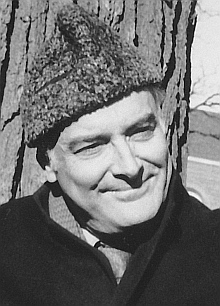
‘Notes On The Death Of Culture’ By The Philosopher William Earle
William Earle: ‘Notes on the Death of Culture’, in MR Stein, AJ Vidich & DM White (eds), Identity and Anxiety, Free Press of Glencoe, 1960, 367-383 In General The culture of the western world has for some time been under diagnosis as though it were a patient sick with an unknown disease. The doctors are […]
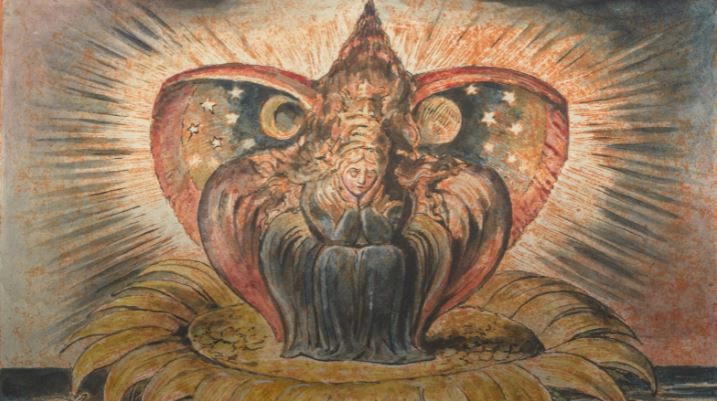
The four-fold imagination: what we can learn from William Blake’s visionary imagination
In The Master and His Emissary, Iain McGilchrist stresses the central dynamic that lies behind the images and poetry of William Blake. It can be seen even in the titles of Blake’s works, such as The Marriage of Heaven and Hell and Songs of Innocence and Experience. The titles “allude to the reality that, in the lived world of the right hemisphere, opposites are not ‘in opposition’.” Instead, these “contraries”, to use Blake’s word, create the tension needed to open onto deeper levels of consciousness.

The Meaning Of Depth And Breadth In Education
This image is used by Iain McGilchrist in his discussion of depth. On Plate 7 in his book, The Master and His Emissary, he writes: Here light, colour and texture of the stone surfaces all emphasise the depth of perspective in both time and space, drawing us into felt relationship with the world.

Think Spiral: The Divided Brain And Classical Liberalism
This is a post-peer-review, pre-copyedit version of an article to be published in Society. The final authenticated version is available online here. Iain McGilchrist richly explains the right and left hemispheres of the brain, how each functions and what each tends to do. This paper serves, firstly, as a primer to McGilchrist’s fascinating exposition. Second, it offers a […]

Docere, Delectare, Movere
Dr Angela Voss has been involved in devising and teaching Masters programmes for Kent University and CCCU in the UK for the last fifteen years and she is a co-founder of the newly launched Centre for Myth, Cosmology and the Sacred. This piece is reproduced from the book, Re-enchanting the Academy, by kind permission of Rubedo Press.
